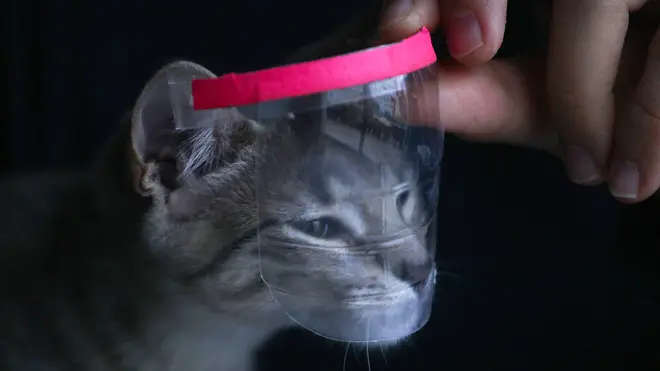
Shelagh Fogarty 1pm - 4pm
19 June 2020, 07:17

Concerns have been raised by a team of UK scientists over whether people's pets, including cats and dogs, could infect people with Covid-19.
Researchers from University College London want more research to be done, saying if the Covid-19 virus becomes common in animals in close proximity to humans - such as pets or livestock - outbreaks could occur even if the coronavirus has been eradicated from in people in a given area.
In a comment article in The Lancet Microbe, the scientists have called for more research into which animals are susceptible to the virus causing Covid-19, and for regular testing to then be carried out on the species posing the highest risk of transmitting the disease to people.
Domestic and feral cats, dogs, hamsters, monkeys and ferrets have so far been shown to be able to be infected with the SARS-CoV-2 virus.
The authors also warn farmed wildlife such as pigs, minks, bats and rodents, could act as "reservoir species" for the virus. Some 10,000 farmed minks were destroyed in the Netherlands last month due to fears they had spread the disease to people, although only a small number of the animals showed symptoms.
Co-author Professor Joanne Santini said: "There is increasing evidence that some animals can catch SARS-CoV-2 from people, and might subsequently transmit it to other people - but we don't know just how much of a risk this is, as it's an area of study that has not yet been prioritised.
Listen & subscribe: Global Player | Apple Podcasts | Google Podcasts | Spotify
"We need to develop surveillance strategies to ensure we don't get taken by surprise by a large outbreak in animals, which could pose a threat not just to animal health but to human health as well.
"Virus transmission in animal populations could become irreversible if left unchecked, and may threaten the success of existing public health measures if people continue to catch the virus from an infected population of animals."
Co-author Prof Sarah Edwards said: "There's an urgent need for widespread surveillance, by testing samples, preferably non-invasively, from large numbers of animals, particularly pets, livestock and wildlife that are in close proximity to human populations.
"More laboratory experiments on small numbers of animals are unlikely to give us the evidence needed to be confident that certain species are entirely safe, making major surveillance work the only real option here."
A study in the New England Journal of Medicine last month said cats can readily become infected with SARS-CoV-2 and may be able to pass the virus to other cats.